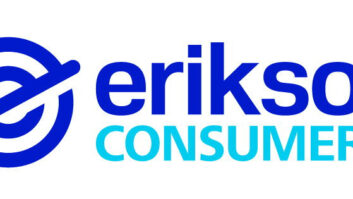“I understand how you feel.”
How many time have you heard your salespeople
say this to their (your) customers after an
objection is raised? Sure, I know, it’s Selling
101, the old “Feel, Felt, Found” method. I get
it, but the problem is your salespeople don’t.
Somewhere along the way they attended a
training seminar that taught them to use Feel,
Felt, Found every time they get an objection.
Here’s how it works: First, “I understand
how you
feel
” (shows empathy, a nice touch).
Then, “Others have
felt
this way too” (I don’t
want my customer to think that they are alone).
Finally, “What they have
found
is that by ….”
(insert here whatever it is you are trying to get
the customer to do). While the concept is right, let’s see
if we can make Feel, Felt, Found work more effectively.
Before a salesperson attempts to handle any objection,
he should first make sure that he understands
what the customer is really saying. An easy example
is the objection, “It’s too expensive.” Before you blurt
out “I understand how you feel” and tout the benefits
of your financing program, consider some of the other
possible options, as “too expensive” means different
things to different people. Is it that they really don’t have
the money? Could it be that they think it’s too expensive
given the product’s benefits compared to its price? Or
maybe they have seen it elsewhere for less money.
While these are just three possible scenarios, the
initial response of offering your financing program only
addresses one of them (that the customer can’t afford
it). Take the time to clarify the objection
before you try to answer it so you can offer
an appropriate response. You could clarify
it with an open-ended question such as “By
too expensive do you mean you don’t think
it’s worth the price?”
Here’s another example of clarifying the objection.
Let’s say you’ve done a great job of
presenting your service plan to the customer
and you ask him if he would like to go ahead
and include it with his purchase. He responds
with “Can I get it later?” First, I would view this
as more of a buying signal than an objection since it’s
really a question expressing interest. I would handle this
by answering the customer’s question to avoid alienating
him. Depending on your company’s policy and/or state
law, your answer is either yes or no, but either response
should be followed by a clarifying question. “I can only
offer it to you today, but may I ask if there’s a reason that
you want to wait to purchase it?” At this point you have
answered the question and asked for clarification before
you begin to handle the real objection.
Out of that clarification will come a variety of responses,
such as “I need to talk to my spouse” or “I
just don’t have the money right now.” Let’s deal with
the latter. Clarify again: “So you like the idea of the program,
it’s just a matter of making it affordable today?”
Again two possible options, yes or no. If it’s no, there
is an underlying issue that needs to be uncovered by
further clarification. If it’s yes, now and only now is the
old Feel, Felt, Found appropriate, since we have clarified
and uncovered enough information to understand
what it is that the customer is really saying.
But instead of “I understand how you feel,” try “Now I
understand” (the “
feel
” is implied). “I hear the same thing
from other customers every day” (others have felt this way).
“Most of them are able to get the program that they want
by taking advantage of our in-store finance program” (tell
them what the group
found
to solve the problem). “Why
don’t we go ahead and have you fill out the paperwork, it
only takes a few minutes, how does that sound?”
The point is to take the time to uncover the real objection
before trying to solve the problem. Feel, Felt,
Found is great conceptually; just make sure to use it
appropriately.
Tom Hebrock is retail services VP at Stuart & Associates,
a Brentwood, Tenn.-based consulting firm
working with manufacturers and retailers on returns
reduction, extended-service plan sales and sales
training now in its 15th year. For more information,
visit www.bettersales.com, call (615) 371-9322, or
write Tom at [email protected].













